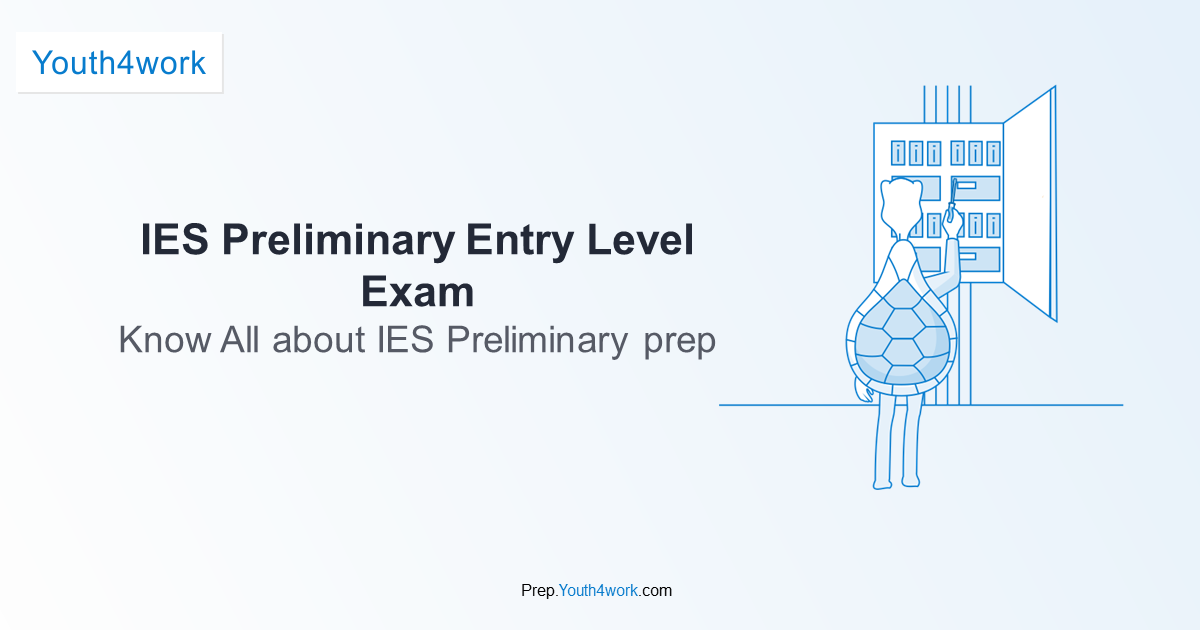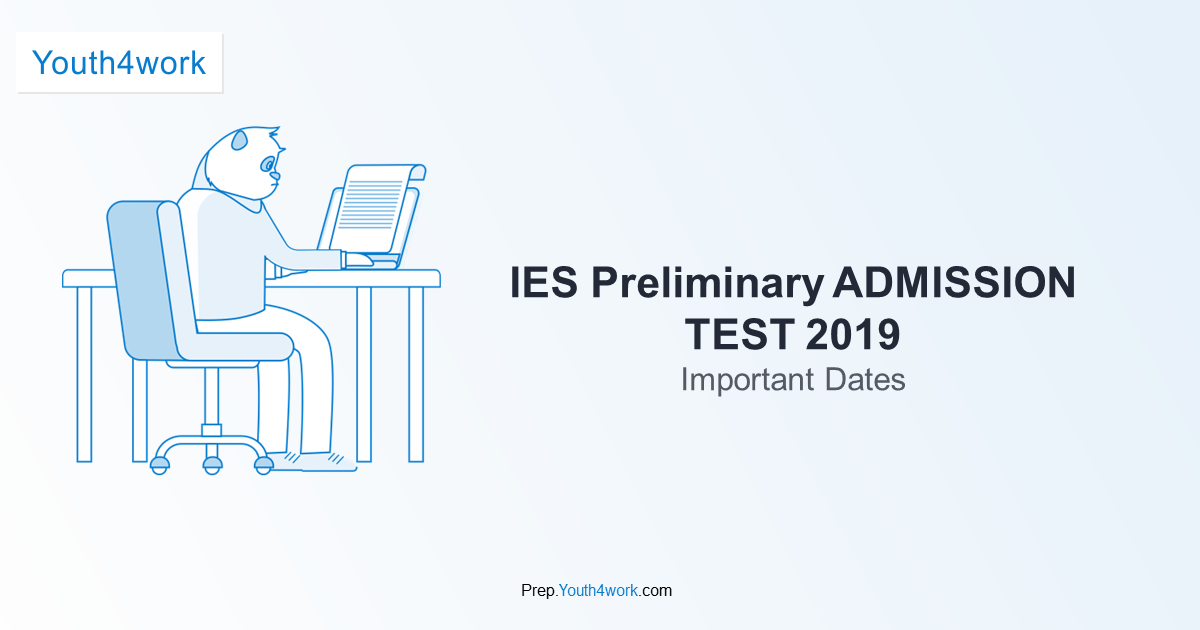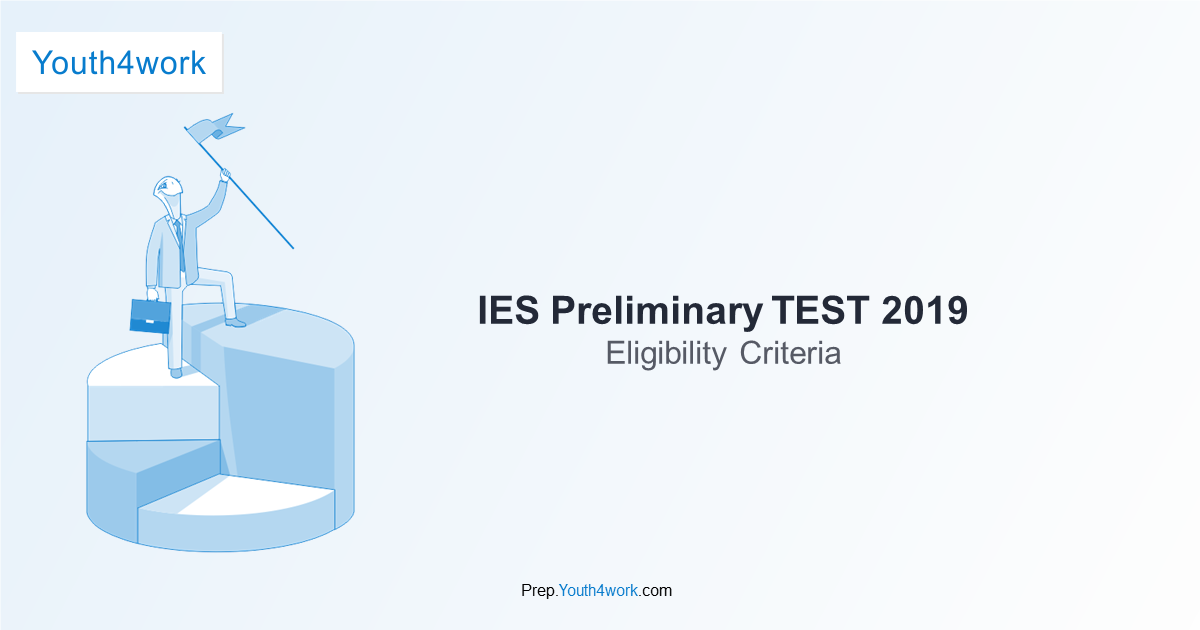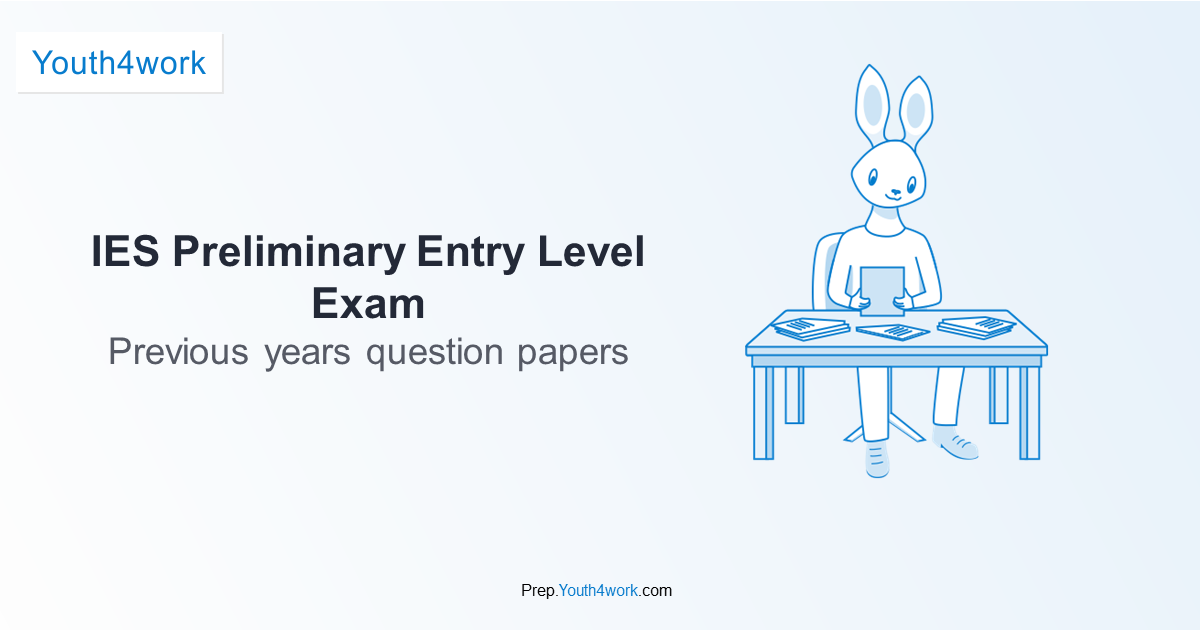Indian Engineering Services: Preliminary Exam Pattern, Details and Previous Year Papers Download
The official notification has been released by Union Public Service Commission (UPSC) for Indian Engineering Services (IES), also known as Engineering Services Examination 2019 - 2020, on 25 September, 2019. UPSC is inviting all the eligible aspirants to fill the application form, from 25 September, 2019 to 15 October, 2019. IES is conducted to recruit engineers for 4 streams, i.e., Civil, Electrical, Mechanical and Electronics & Telecommunications, for Techno-Managerial posts. As per the eligibility criteria, the candidate must be a graduate in Engineering field. The selection procedure will be of three stages, i.e., Preliminary, Mains and Personal Interview. The preliminary exam will consist of two papers- General Studies & Engineering Aptitude and Engineering Discipline. After the final selection, the selected candidates will be posted in various Ministries and Departments of GoI.
Syllabus | Eligibility Criteria | Exam Pattern | Tips and Tricks | Take Free Mock Test
Key Highlight
of IES Preliminary Examination

Application Fees:
For General: Rs. 200/-
For Females/SC/ST/OBC/PH
There is no fee

Educational Qualification:
Bachelor’s degree in Engineering from a recognized University or its equivalent

Exam Date:
5 January 2020

Selection Process:
1. Prelims Exam
2. Mains Exam
3. Personal interview of selected candidates.

Age Limit:
Minimum 21 years to maximum 30 years

Exam Duration:
Paper-1: 2 Hrs
Paper-2: 3 Hrs

No. of Sections:
General Studies and Engineering Aptitude (Paper 1)
Chosen Subject (Paper 2)

Application Form:
25 Sep - 15 Oct 2019

Result:
20 Feb 2020
IES Prelims: Important Dates
Date To Fill The Application Form: 25 September, 2019 To 15 October, 2019
Last Date To Make Any Modification In Application Form: October, 2019
Last Date For Payment Of Application Fee (Online): October, 2019
Downloading of Admit Cards - Preliminary: Before Examination
Exam Date: 5 January, 2020
Result of Online Exam - Preliminary: 20 February, 2020
IES Prelims: Eligibility Criteria
Nationality / Citizenship: The Candidate Must Be An Indian Citizen.
Age Of The Candidate:
Minimum Age: 21 Years
Maximum Age: 30 Years
Age Relaxation:
• Scheduled Caste/Scheduled Tribe - 5 Years
• Other Backward Classes - 3 Years
• Ex-Servicemen/ Disabled Ex-Servicemen - 5 Years
• Blind/Deaf/Mute - 10 Years
• Persons Domiciled In J&K During 1-1-80 To 31-12-89 - 5 Years
Submission of Online Application
Submission of application form is strictly in online mode as announced by UPSC, from 25 September, 2019 to 15 October, 2019 on the official website. After that, no application forms will be accepted in any other procedure. All the candidates must read all the instructions carefully, before filling the application form. Also, the candidates must keep all the required documents in digital form (scanned copies) ready, beforehand.
IES Prelims: Exam Pattern
- Preliminary online test (CBT) will be divided into two papers.
- The paper 1 will have 200 MCQs type questions.
- The paper 1 will be of 200 marks.
- Total duration of paper 1 will be 120 minutes.
- Sections in paper 1: Two
- General Studies
- Engineering Aptitude
- The paper 2 will have 300 MCQs type questions.
- The paper 2 will be of 300 marks.
- Total duration of paper 2 will be 180 minutes.
- Sections in paper 2: One
- Engineering Discipline
- Medium of language of the questions will be Hindi and English.
- Marking scheme: 0.33 marks will be deducted for each wrong answer and 1 mark will allotted for each right. If a question is left blank, i.e. no answer is marked by the candidate; there will be no penalty for that question.
IES Prelims: Syllabus
Paper 1
General Studies:
Standards and Quality practices in production, construction, maintenance, and services
Basics of Energy and Environment: Conservation, environmental pollution, and degradation, Climate Change, Environmental impact assessment, Project Management Basics, The basics of Material Science and Engineering, Information and Communication Technologies (ICT) based tools and their applications in Engineering such as networking, e-governance, and technology-based education, Ethics and values in the Engineering profession, Current issues of national and international importance relating to social, economic and industrial development., Engineering Aptitude covering Logical Reasoning and Analytical Ability, Engineering Mathematics and Numerical Analysis, General Principles of Design, Drawing, Importance of Safety.
Engineering Aptitude:
Civil Engineering
Building Materials, Solid Mechanic, Design of Steel Structure, Structural Analysis, Construction Practice & Management, Design of Concrete and Masonry Structures
Electronics and Telecommunication
Basic Electrical Engineering, Basic Electronics Engineering, Electronics Measurements & Instruments, Material Science, Analog and Digital Circuits, Network Theory
Mechanical Engineering
Thermodynamics & Heat Transfer, Fluid Mechanics, Turbomachinery, IC Engines, Air Conditioning, Refrigeration, Power Plant Engineering, Renewable Sources of Energy
Electrical Engineering
Electrical Materials, Engineering Mathematics, Electrical and Electronics Measurements, Electric Circuits and Fields, Computer Fundamentals, Basic Electronics Engineering
Paper 2
Civil Engineering
Hydrology and Water Resource Engineering, The flow of Fluids, Hydraulic Machines, Hydro Power, Geotechnical Engineering & Foundation Engineering, Environmental Engineering, Transportation Engineering, Surveying & Geology
Electronics and Telecommunication
Control Systems, Analog and Digital Communication System, Electromagnetics, Computer Architecture and Organisation, Advanced Communication Topics, Advanced Electronics Topics
Mechanical Engineering
Thermodynamics & Heat Transfer, Fluid Mechanics, Turbomachinery, IC Engines, Air Conditioning, Refrigeration, Power Plant Engineering, Renewable Sources of Energy
Electrical Engineering
Systems and Signal Processing, Analog and Digital Electronics, Electrical Machines, Control System, Power Electronics and Devices, Power System
IES Prelims: Tips and Tricks
-
You need to finish 2 papers having 3 sections of IES Prelims within 120 minutes and 180 minutes respectively, which means you need speed with accuracy in order to attempt 200 and 300 questions in total respectively. The more you practice, the better chances you have of acing this exam.
-
Make technical section your strong suit, practice questions to solve them within time to increase efficiency.
-
Remember negative marking is a factor here. Therefore, try not to attempt questions that put you in doubt. Although, the prelim exam will be of just qualifying nature and won’t be considered for the final merit list as only Main exam marks will matter, but you still need to secure the minimum qualifying marks in the prelims as set by the UPSC.
-
Manage your time properly; give appropriate amount of time to each section. Try to improve your time by practicing as many online tests as possible. Youth4work provides online mock tests will time limit attached to each question; this way one can learn to finish the entire exam within the time limit.
-
Studying in a stretch for hours can be tedious and hard and also not so good. Therefore, try to study at several times in regular sessions during a day. This will make learning easy and fun, also you will have enough time to brush up the already studied topics in between intervals.
-
It is very important to maintain proper health, so you don’t fall sick on the big day. Give your brain appropriate time to refresh itself. Don’t rush too much information into your head than its limit allows. Take it slow and steady. And get at least eight hours of sleep each night.
Youth4work Prep Tests
Online practice tests for competitive exams – are very unique and popular among aspirants. Aspirants can take self-designed mock-tests as well as practice for sections and topics separately. Youth4work’s unique and proprietary technology is helping lakhs of aspirants to reveal personal details on what are the strongest areas of aspirants for any exam and also suggest how they can improve the performance. Following are interesting insights from nearly lakhs of question attempts on IES Prelims practice tests on Youth4work. Every aspirant is rated on a Rating Scale. The ratings of the aspirants change with every question attempt.
Downloads
Case Study, Notes, Previous Year Paper
Discussion Q & A's of
Youths with similar talents will answer your query.








